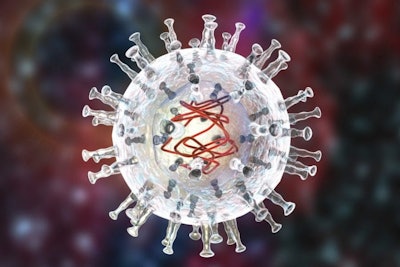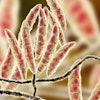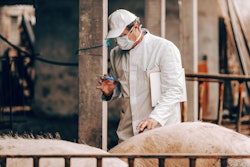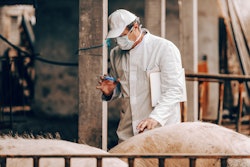
Two years after the African swine fever (ASF) situation in the West African state was resolved, the virus has been detected in domestic pigs at several locations in Côte d’Ivoire (Ivory Coast). Further outbreaks have been confirmed by South Africa. In the Caribbean region, earlier outbreaks have been reported retrospectively by the Dominican Republic, while the government of Haiti is working on an eradication plan.
First cases in the Ivory Coast were confirmed in mid-July, according to the latest notification to the World Organisation for Animal Health (WOAH). Since then, the virus has been detected in four village herds, each comprising between 28 and 600 pigs.
Widely dispersed across the country, these outbreaks have occurred in four of the West African nation’s 14 administrative districts. First was in Montagnes in the west, followed by Bas Sassandra in the southwest, then the northern-central department of Vallée du Bandama. The most recent outbreak began in mid-September in Lagunes in the south of the country.
Source of the infection was attributed to the introduction of new animals, fomites and illegal animal movements.
In April 2021, there was a single ASF outbreak in Côte d’Ivoire in a different district. The disease situation was declared “resolved” four months later.
Further outbreaks in South Africa
Over the past few weeks, South Africa’s veterinary authority has officially confirmed to WOAH 12 further outbreaks of ASF in domestic swine.
According to these latest notifications, nine of these outbreaks were in the provinces of Mpumalanga, Free State, Gauteng and North West. Two involved backyard or village herds, and the rest affected farms, each with between 15 and around 4,400 pigs. The most recent outbreak began in mid-September.
These bring the totals in this ASF series — which began in April 2019 — to 170 outbreaks directly affecting more than 69,400 animals.
A separately reported ASF wave began 12 months later, and is confined to Eastern Cape. It has affected almost 23,000 pigs in total at 37 locations.
Between November 2022 and early September this year, ASF outbreaks occurred at three premises in the Nelson Mandela Bay area, according to the latest WOAH notifications.
These outbreaks above have occurred outside the country’s ASF-free zone.
A third ASF series in the country started in February 2021, and is confined to Western Cape.
A recent notification to WOAH notes there have been no further ASF outbreaks in this province, with the total remaining at 53. With the most recent outbreak in this series confirmed in April, the number of animals directly involved stands at almost 9,700.
After an eight-month hiatus, the ASF virus was detected again in KwaZulu-Natal in June. No further cases in this disease series have been notified to WOAH.
ASF developments in the Caribbean region
In April 2021, the ASF virus was detected again in the Dominican Republic for the first time in 40 years.
Latest official notification to WOAH puts the number of confirmed outbreaks at 290. Directly impacted have been around 22,700 domestic pigs.
The most recent report was submitted one month ago, outlining 43 outbreaks, all of which began in 2022. These included one large backyard herd of 1,314 animals, and three premises described as “farms,” each with between 110 and 327 pigs. The other infections involved small non-commercial herds. The most recent outbreak reported to WOAH was confirmed exactly one year ago.
In July, the agriculture ministry stated that the ASF situation was under control in the Dominican Republic.
From the Republic of Haiti, the most recent update on the ASF situation was submitted to WOAH in April 2022.
At that time, presence of the virus had been confirmed at 31 locations between the first cases in August 2021 and March 2022. Affected premises — manly backyards — were located in eight of the nation’s 10 departments.
Suggesting that the disease has not yet been eliminated, Ici Haiti reported this month that an event had been held on ASF control.
With technical support from the United Nations’ Food and Agriculture Organization (FAO), the agriculture ministry is revising the National Plan for the Eradication of African Swine Fever. A two-phase program, the first stage will focus on screening, awareness, training and controls on animal movements. This will be followed by the setting up of central and decentralized veterinary agencies.
After detection of the ASF virus in the Caribbean and the region’s proximity, U.S. research institutes and official bodies have been undertaking a range of measures to safeguard the nation’s pork industry from ASF.
View our continuing coverage of the global African swine fever situation.

















